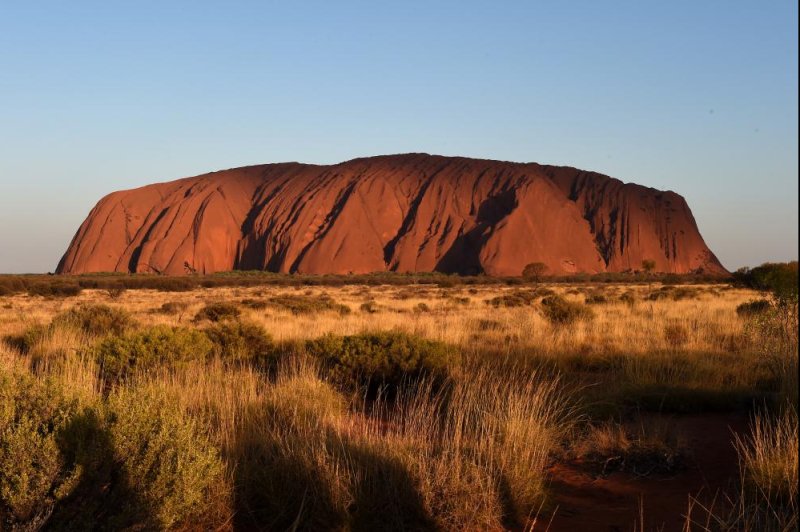Australia's famed Uluru rock will be closed to climbers beginning 2019 after a unanimous vote to ban the practice. File photo by EPA
Nov. 1 (UPI) -- Climbing the Uluru rock in Australia will be banned beginning in October 2019, after a board unanimously voted to end the practice.
The Uluru-Kata Tjuta national park board asked visitors to understand the new rule as upholding a long-held request of the Anangu -- indigenous Australians -- who felt that they were "intimidated" into allowing climbers to use the rock for recreational purposes.
"Over the years, Anangu have felt a sense of intimidation as if someone is holding a gun to our heads to keep it open. Please don't hold us to ransom," a traditional owner of Uluru, Sammy Wilson, said.
"This decision is for both Anangu and non-Anangu together to feel proud about; to realize, of course, it's the right thing to close the 'playground'."
The director of the Central Land Council, David Ross, described the vote as "righting a historic wrong" and said the rock is "not a theme park like Disneyland."
"This decision has been a very long time coming and our thoughts are with the elders who have longed for this day but are no longer with us to celebrate it," Ross said.
The Anangu have long requested that Uluru not be climbed, as they believe it's a deeply sacred men's site -- and that they have a cultural responsibility for the number of climber deaths and injuries.
Indigenous Australians have also complained about visitors urinating on the rock, potentially contaminating water sources.
Wilson, who runs an indigenous-owned tour operator, said visitors shouldn't feel that there will be nothing to do after Uluru is closed to climbers.
"There are so many other smaller places that still have cultural significance that we can share publicly," Wilson said.
"Instead of tourists feeling disappointed in what they can do here, they can experience the homelands with Anangu and really enjoy the fact that they learned so much more about culture."















